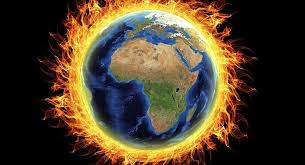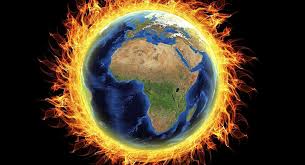
The new study on climate change and its impacts that was released by the University of Exeter early this week, has warned that there are chances of more extremes of weather in the near future because of climate change globally which could lead to potential risks of food shortages in many countries.
The manner in which the food insecurity situation of different countries because of climate change was examined in the study which was conducted on data gathered from 122 developing and least-developed countries which are primarily based in Asia, Africa and South America. The investigation team was led by the University.
For most of the countries that were examined ion the study, the warming of the world by two degrees Celsius compared to pre-industrial levels would have a more serious impact compared to the potential damages that would be caused by global warming by 1.5 degrees Celsius, even though the study acknowledged that the negative impacts in both the scenarios on many of the examined countries was severe.
Professor Richard Betts, Chair in Climate Impacts at the University of Exeter said that the climate change would see more of both the extremes- heavy rainfall and severe droughts, because of the rising temperature of the Earth. The impacts of this would be different in different parts of the world. "Such weather extremes can increase vulnerability to food insecurity", he said.
On the average, scientists expect more wetter conditions, they warned. As a consequence, food production would be put to threat because of this wetter weather. However, in some other regions of the world, severe and prolonged droughts could also threat food production and hence food security as agriculture would be difficult under such circumstances. These were among the more important conclusions of the study which was published in the journal Philosophical Transactions of the Royal Society A.
South America and Asia is expected to be most impacted negatively by the wetter climate conditions with more rainfall expected and the study has projected more extreme projections for rainfall and indicated that if the global temperature rises by two degrees, the size of the River Ganges in India would increase to more than double the current size.
"Some change is already unavoidable, but if global warming is limited to 1.5 degrees Celsius, this vulnerability is projected to remain smaller than at two degrees Celsius in approximately 76 percent of developing countries," said Professor Betts
(Source:www.xinhuanet.com)
The manner in which the food insecurity situation of different countries because of climate change was examined in the study which was conducted on data gathered from 122 developing and least-developed countries which are primarily based in Asia, Africa and South America. The investigation team was led by the University.
For most of the countries that were examined ion the study, the warming of the world by two degrees Celsius compared to pre-industrial levels would have a more serious impact compared to the potential damages that would be caused by global warming by 1.5 degrees Celsius, even though the study acknowledged that the negative impacts in both the scenarios on many of the examined countries was severe.
Professor Richard Betts, Chair in Climate Impacts at the University of Exeter said that the climate change would see more of both the extremes- heavy rainfall and severe droughts, because of the rising temperature of the Earth. The impacts of this would be different in different parts of the world. "Such weather extremes can increase vulnerability to food insecurity", he said.
On the average, scientists expect more wetter conditions, they warned. As a consequence, food production would be put to threat because of this wetter weather. However, in some other regions of the world, severe and prolonged droughts could also threat food production and hence food security as agriculture would be difficult under such circumstances. These were among the more important conclusions of the study which was published in the journal Philosophical Transactions of the Royal Society A.
South America and Asia is expected to be most impacted negatively by the wetter climate conditions with more rainfall expected and the study has projected more extreme projections for rainfall and indicated that if the global temperature rises by two degrees, the size of the River Ganges in India would increase to more than double the current size.
"Some change is already unavoidable, but if global warming is limited to 1.5 degrees Celsius, this vulnerability is projected to remain smaller than at two degrees Celsius in approximately 76 percent of developing countries," said Professor Betts
(Source:www.xinhuanet.com)














